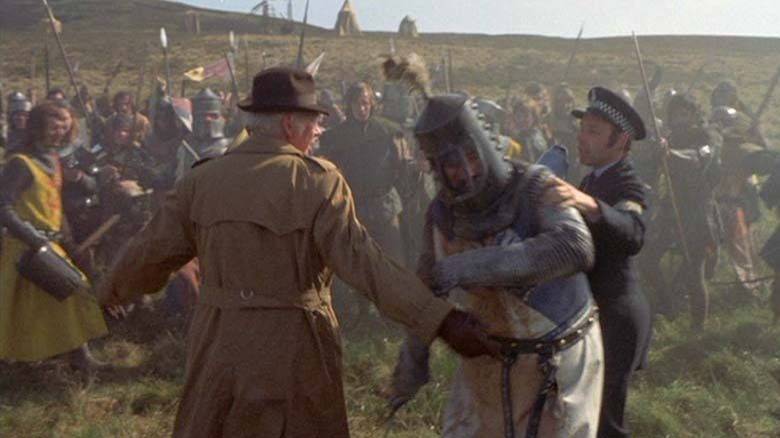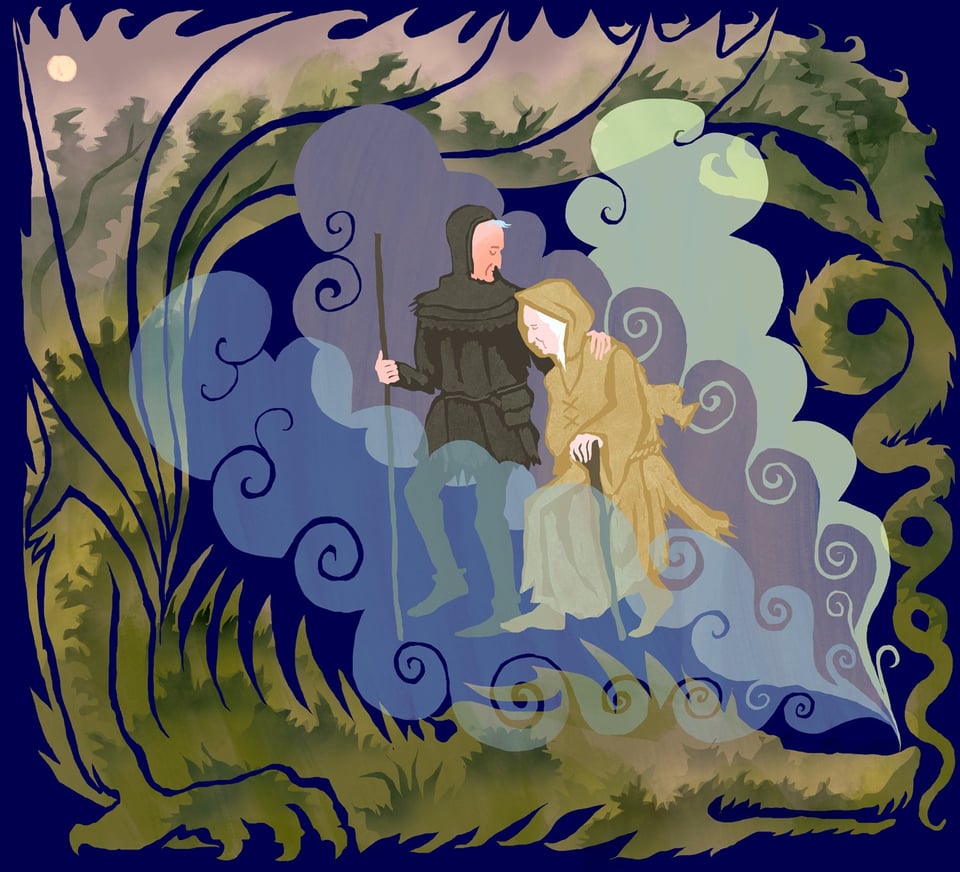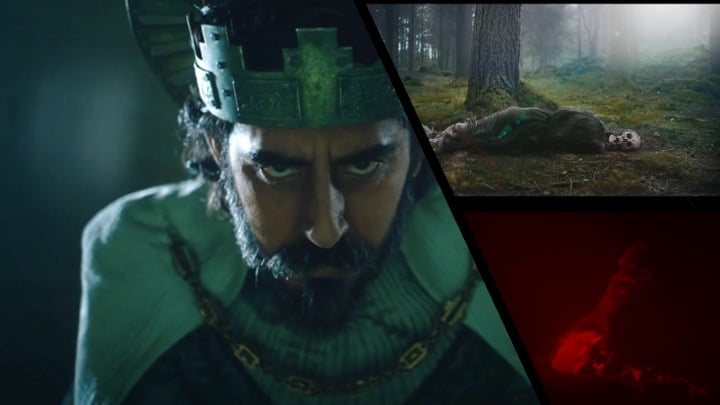King Arthur Refuses to Stay in the Middle Ages
The Seductions of Coevalness

Modern Medieval
by David M. Perry and Matthew Gabriele
From Matt: I found these notes recently as I was cleaning some stuff out this Summer. They’re from a conference I attended in 2024, specifically a session in honor of the amazing Bonnie Wheeler and her great essay “King Arthur and the Seductions of Chivalry.”
I reshare my comments here — lightly edited — as a prompt to think about how “unruly” the medieval world sometimes is, how we both want and don’t want it to intrude into modernity.
In Spring 2024, I was teaching a grad course on “The Politics of Medievalism.” There, we began to naturally focus on how studying the medieval world leads to a kind of temporal slippage, a kind of coevalness so that medieval and modern exist simultaneously. In my course, we read Kazuo Ishiguro’s 2015 novel The Buried Giant and watched Monty Python and the Holy Grail. Both of these modern instances of Arthuriana play extensively with then and now.
In Monty Python, of course, the medieval literally intrudes into modernity when a mounted knight attacks and kills a “Famous Historian,” which leads to (spoiler alert, I guess) modern police arresting Arthur and Bedivere to end the film.

The Buried Giant, on the other hand, is much subtler in its time slippage. The novel opens with a fairy tale-like paragraph emphasizing the distance between the England of now and that of then - then being a dark age of vapor and mist, of ruins and monsters, of subsistence and forgetting.
From there, we enter this dark age alongside an old couple that goes on a journey. But the narrative quickly becomes unruly, as the story’s past and present entwine like a double-helix.
It’s slowly revealed that the pervasive forgetting is intentional, made to mask a horrible genocide carried out by King Arthur - his ultimate failure.
A dragon slumbers, its breathe cloaking the land in shadow and fog, and is the cause of the forgetting. The buried giant is the past itself, which is ultimately unearthed when the dragon is slain and the horrors committed in Arthur’s name resurface alongside the more mundane mistakes of the protagonists’ everyday life. The past comes like a rush into the present until the two can no longer be separated.

This temporal simultaneity can also be seen in another modern Arthurian reimagining - one that I didn’t teach with but love nevertheless - the 2021 film The Green Knight. There, Gawain, played by Dev Patel, encounters multiple pasts and futures on his way to the Green Chapel.
He both escapes his bonds when robbed in the forest and sees himself a rotted corpse still bound to the tree, he is both Winnifred’s rapist and murderer and her assistant in the secluded house, and he is both cowardly king who is undone by a rebellion and brave knight who faces the Green Knight’s doom at the chapel itself.
Those possible futures then become Gawain’s past and allow him to make different decisions in his own present.

I bring all of this up because thinking with this coevalness is, I think, a productive path forward for medieval studies more generally.
It’ll shock no one to remind us all that the field is in a legitimate crisis - one engineered in large part by hostile colleagues, not by a lack of demand. As such, I’d argue, the way back is to force the medieval into conversation with the modern, to demonstrate ineluctably that you cannot understand - nor shape - our contemporary world without us medievalists.
When David and I wrote The Bright Ages, we weren’t thinking in these formal terms perhaps, but we were certainly thinking in this direction. We set out to combat the myth of the “dark ages” at its root.
Originally, identification of the period as a “dark age” referred to the belief that there were no sources to tell us what actually happened. But that’s not true. So, we called our book The Bright Ages, not because we think medieval Europe was a great time and place (it really wasn’t), but because so many scholars have illuminated the past - shined a light on the period, made it known.
We may not be able to entirely stop the medieval constantly intruding into modernity - how, particularly since the rise of Trump and a related neo-fascist strain of right-wing politics, we so often see analogies to the Black Death, evocations of the Crusades as models, masculinities lionizing the Vikings. But what we can do is offer different, better, more true stories about the medieval past and its relationship to our own time - to query assumptions about gender and race, to invite our students on an adventure to learn how to tell better stories, to learn from mistakes like Gawain, to act with empathy and love like Axel in The Buried Giant. These are lessons about the medieval world, but about ours as well.
Because, in the end, to quote Bonnie Wheeler herself, if our audiences - those who sit in our classes or read our books in airports
“feel that they find answers about themselves in these stories far more than they find answers about King Arthur, then I [too] believe it's been a useful experiment.”
So, I assert, let our audiences be seduced.
-
I loved the new Green Knight, it was a startlingly beautiful movie. Have you written any posts on it? I'd love to hear a medievalists take on it. And after reading your post I went right to Libby and borrowed The Buried Giant. I am a bit apprehensive. I grew up on The Once and Future King, Excalibur, The Arthurian Book of Days, and the like, and am nervous to learn more about this genocide. I've tried to get my kids interested in the topic, but when I start to read TH White to them, they fall asleep almost immediately. Good for parenting, bad for learning about the story.
-
Thanks for this and all your interesting posts, M&D! I have two thoughts: 1. How is the crisis in medieval studies and the humanities more generally "engineered in large part by hostile colleagues, not by a lack of demand"? My own job loss, many more layoffs/cuts, declines in numbers of humanities majors nationwide seem to me driven by forces outside the field - so would appreciate some more analysis/thoughts about this point (beyond the 2023 blog post you link to, since SO MUCH has happened since then....) 2. Shameless self-promotion for my own summer reading on medieval/modern intersections - do pick up Lev Grossman's Bright Sword if you get a chance! https://massmedievalist.substack.com/p/summer-reading-the-massachusetts
Add a comment: